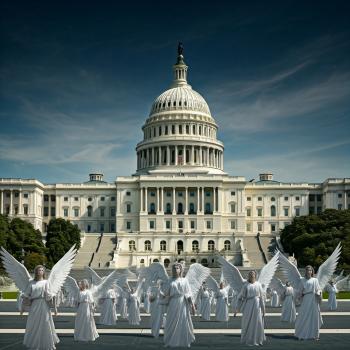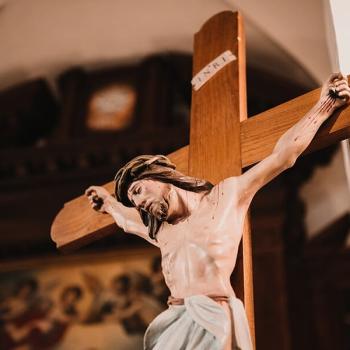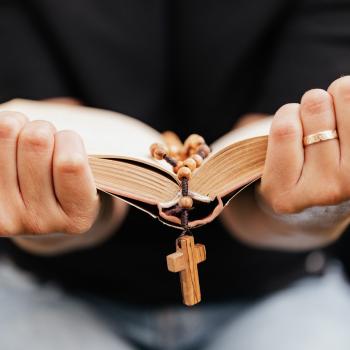
By
Christopher L. Schilling
What is American patriotism and how do we define it? I think this is a question that a lot of Americans are asking themselves not just following the recent controversies of NFL players kneeling during football games. But it’s also what many of us are asking ourselves living in what has now become “Trump’s America.”
This past year, I began a new call as a chaplain in the United States Air Force Reserve. As an ordained minister in the Christian Church (Disciples of Christ), I have always felt called not only to congregational ministry, but also called to serve our country as a military chaplain. For me, this sense of call stems from my two grandfathers who served in World War II who felt it was their patriotic duty to defend the constitutional freedoms which were given to us.
However, both of my grandfathers also believed that civilians had the patriotic duty to exercise their freedom of speech when they felt the polices of their government were incorrect, damaging, and didn’t reflect the values of what defined America. For them, they did not look at those who protested the Vietnam War or who marched during the Civil Rights Movement as traitors against our country. Rather, they see them as fellow patriots standing up for our country.
The stereotypical imagery of just who are our men and women in uniform is often an ignorant one. Not only is this view ignorant by many on the right, but it’s also an ignorant view held by many on the left. And in reality, it’s often the same image. It’s the stereotypical imagery of a young person in camouflage holding a machine gun shooting down anyone who doesn’t love or support America.
As a self identifying progressive Christian minister, it’s this stereotypical imagery that a lot of my fellow progressive clergy colleagues thought of when I told them I was becoming an Air Force chaplain. For many of them, they are not able to connect my more progressive theological and social beliefs to someone who wears the uniform. And it’s this stereotypical contradictory imagery that not only prohibits a lot of my fellow progressive Christian clergy from serving as military chaplains, but also has led to the progressive Christian movement to be skiddish about being advocates for the social injustices facing our current service members and our returning veterans.
To the surprise of many progressive Christians, one does not have to be pro-war to serve in the military. In fact, military chaplains are non-combative officers and carry no guns nor receive any training in weapon use. Additionally, while military chaplains follow orders like any other military service member, one does not have to share the same views as our elected officials nor do they have to support the industrial military complex. You are there for one purpose; to provide support to our men and women in uniform. And for us as progressive Christians, we need to provide this support. With over 20 veterans killing themselves each day, to the thousands who are homeless, and to the many current service members and veterans suffering from PTSD and other social-injustices, we cannot be skiddish about the needs of those who wear or wore the uniform.
For those of us progressive Christians who can answer the call to become chaplains, it’s the need work alongside not just conservative Christian chaplains, but also the many other chaplains of various faith backgrounds, to addresses the emotional and spiritual needs of those in uniform. For progressive Christians who feel called to remain as civilians, it’s persuading our legislators to find ways to address the rise of suicides, work to better fund our VA hospitals, and work to get more support and care for our veterans returning to civilian life.
While we may disagree with policies and international engagements of our government, we as progressive Christians cannot ignore the needs of the many Americans from many different ethncities, genders, and backgrounds who are our neighbors, family members, and friends that serve or have served in our military.
Yes, our country was built on systemic injustices which still need to be addressed. But our country is still worth fighting for. The American flag should not only represent what this country is, but should represent what it could be.
And while we find ourselves in an uproar about what it means to be a patriot, it’s important we be reminded that a patriot is not someone who shouts that it’s wrong for NFL players to kneel. Nor is it un-patriotic to protest the policies and the in-justices which still exist stemming from a country that has a dark history rooted in colonialism, slavery, genocide, and imperialism.
Instead, a patriot can be anyone who despite our country’s history and the current problems we face, answers the call the call to serve their country to protect our freedoms, especially our freedoms to protest. And a patriot is also anyone who stands up and seeks to to address the social-injustices in our country.
In fact, that is what it means not only to be a patriot. But more importantly, what it also means to be an American.

















